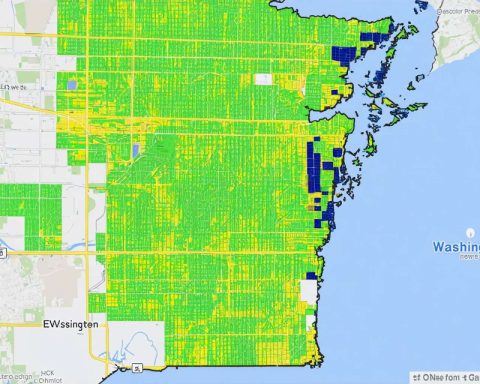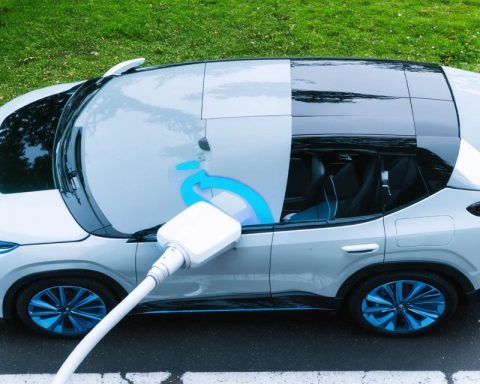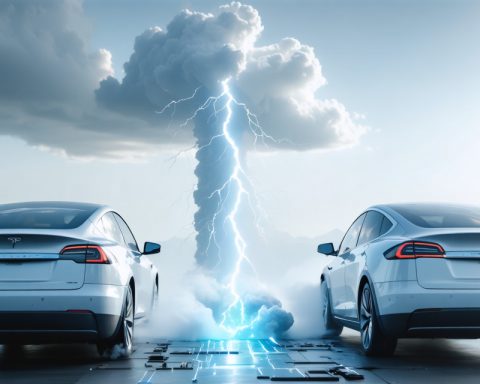- Battery-powered electric vehicles (BEVs) match the durability of gasoline cars, with a lifespan of approximately 124,000 miles.
- BEVs exhibit a 12% reduced failure risk compared to traditional vehicles, suggesting improved reliability.
- The average lifespan of current BEVs is around 18.4 years, enhancing their appeal as a long-lasting choice.
- While initial carbon footprints for EVs may be higher, their long-term environmental benefits are significant.
- BEVs have an average maintenance cost of $0.06 per mile, offering savings over the $0.10 per mile for gasoline vehicles.
- Government incentives contribute to the attractiveness of electric vehicles, promoting wider adoption.
Say goodbye to doubts about the durability of electric vehicles (EVs)! A groundbreaking study reveals that battery-powered electric vehicles (BEVs) are now just as robust as their gasoline-powered counterparts. Analyzing a staggering 300 million test logs from the UK Ministry of Transportation between 2005 and 2022, researchers from top universities unveiled that BEVs can surprisingly last an incredible 124,000 miles—outliving many traditional internal combustion engine vehicles.
With each passing year, the reliability of these future-forward automobiles has skyrocketed, boasting a 12% decrease in failure risk compared to gasoline cars, which enjoy a mere 6.7% drop. Current BEVs show a promising average lifespan of 18.4 years, making them a sustainable choice for the environment and your wallet.
While it’s true that crafting an electric vehicle can leave a larger initial carbon footprint, their long-term benefits outweigh this concern. With the shift to renewable energy sources such as wind and solar, driving an EV translates to zero tailpipe emissions and significant reductions in long-term environmental impacts.
Moreover, the average maintenance cost for BEVs stands at just $0.06 per mile, in stark contrast to the $0.10 per mile for gasoline vehicles. Government incentives further make EVs an appealing option.
As innovations continue to emerge in the electric vehicle realm, they’re not just surviving—they’re thriving! Now’s the time to embrace the shift toward a cleaner, more efficient future.
Unlocking the Future: How Electric Vehicles are Redefining Durability and Sustainability!
The Durability of Electric Vehicles (EVs)
Recent studies have solidified the belief that battery electric vehicles (BEVs) are not only a sustainable option but also remarkably durable. A comprehensive analysis of 300 million test logs from the UK Ministry of Transportation reveals that BEVs now average a lifespan of 124,000 miles, surpassing many traditional internal combustion engine vehicles in longevity. Moreover, the reliability metrics are improving, with BEVs showing a 12% decrease in failure risk, compared to the 6.7% reduction seen in gasoline cars.
Key Features of Electric Vehicles
1. Longevity: Current BEVs boast an impressive average lifespan of 18.4 years, indicating a promising future for EV users.
2. Maintenance Cost: With an average maintenance cost of just $0.06 per mile, BEVs offer a financial edge over gasoline vehicles, which cost approximately $0.10 per mile to maintain.
3. Environmental Impact: Although the production of EVs may initially lead to a higher carbon footprint, the use phase produces zero tailpipe emissions, especially as the energy grid shifts towards renewables.
Important Insights and Trends
– Government Incentives: Many governments provide tax credits and rebates for purchasing EVs, making them more financially appealing.
– Market Growth: The electric vehicle market is projected to grow significantly in the coming decade, with increasing adoption and technological advancements.
– Innovations in Battery Technology: Ongoing research into battery efficiency and recycling is making EVs more sustainable and less energy-intensive to produce.
Related Questions
1. What is the projected market growth for electric vehicles in the next decade?
The electric vehicle market is expected to grow at a CAGR of over 22% from 2023 to 2030, attributed to advancements in battery technology, expanding charging infrastructure, and rising consumer demand for environmentally friendly vehicles.
2. How do BEVs compare to gasoline vehicles in terms of environmental impact over their lifecycle?
Despite the higher initial production emissions associated with BEVs, their lifecycle emissions—considering charging sources such as wind and solar—are significantly lower than those of gasoline vehicles, making them a more sustainable choice in the long term.
3. What are the challenges facing the widespread adoption of electric vehicles?
Major challenges include the need for expanded charging infrastructure, the high cost of EVs relative to traditional vehicles, and consumer range anxiety regarding battery life and charging times.
For more detailed information on electric vehicles and their impact, visit Edmunds or U.S. Department of Energy.













